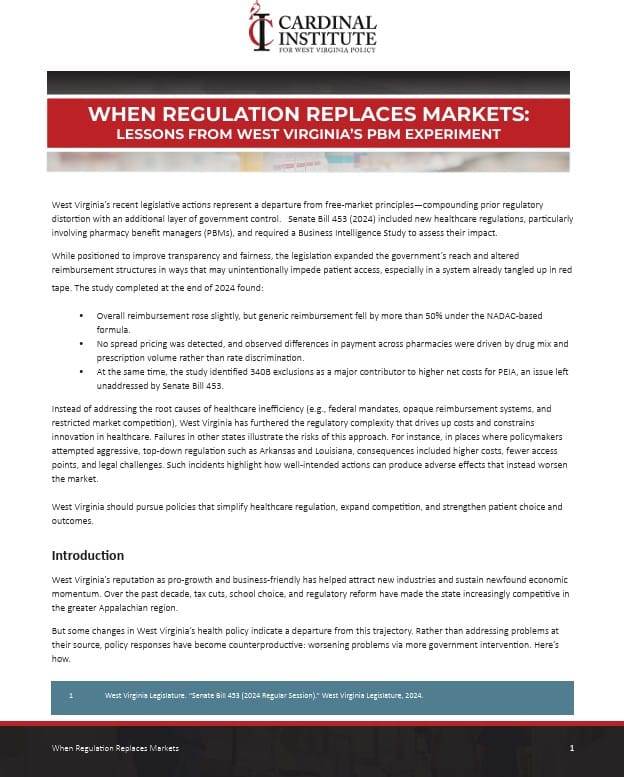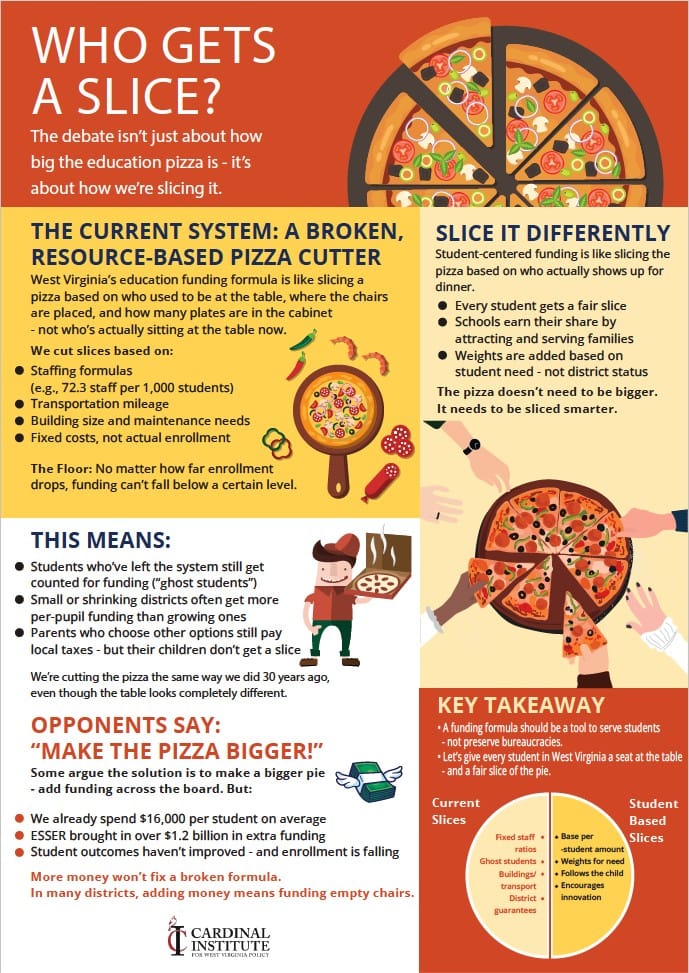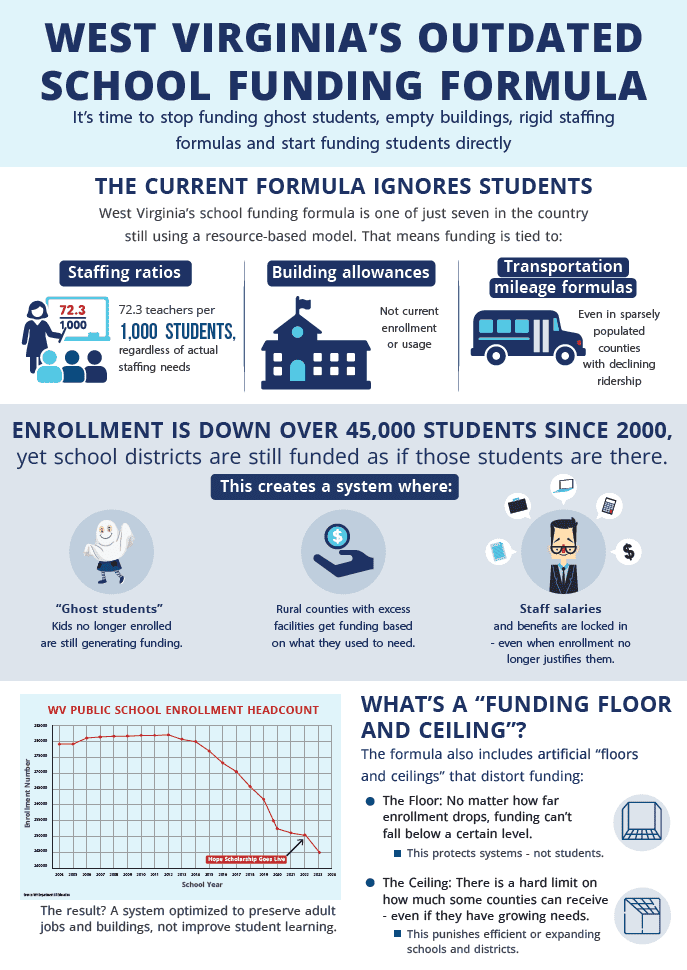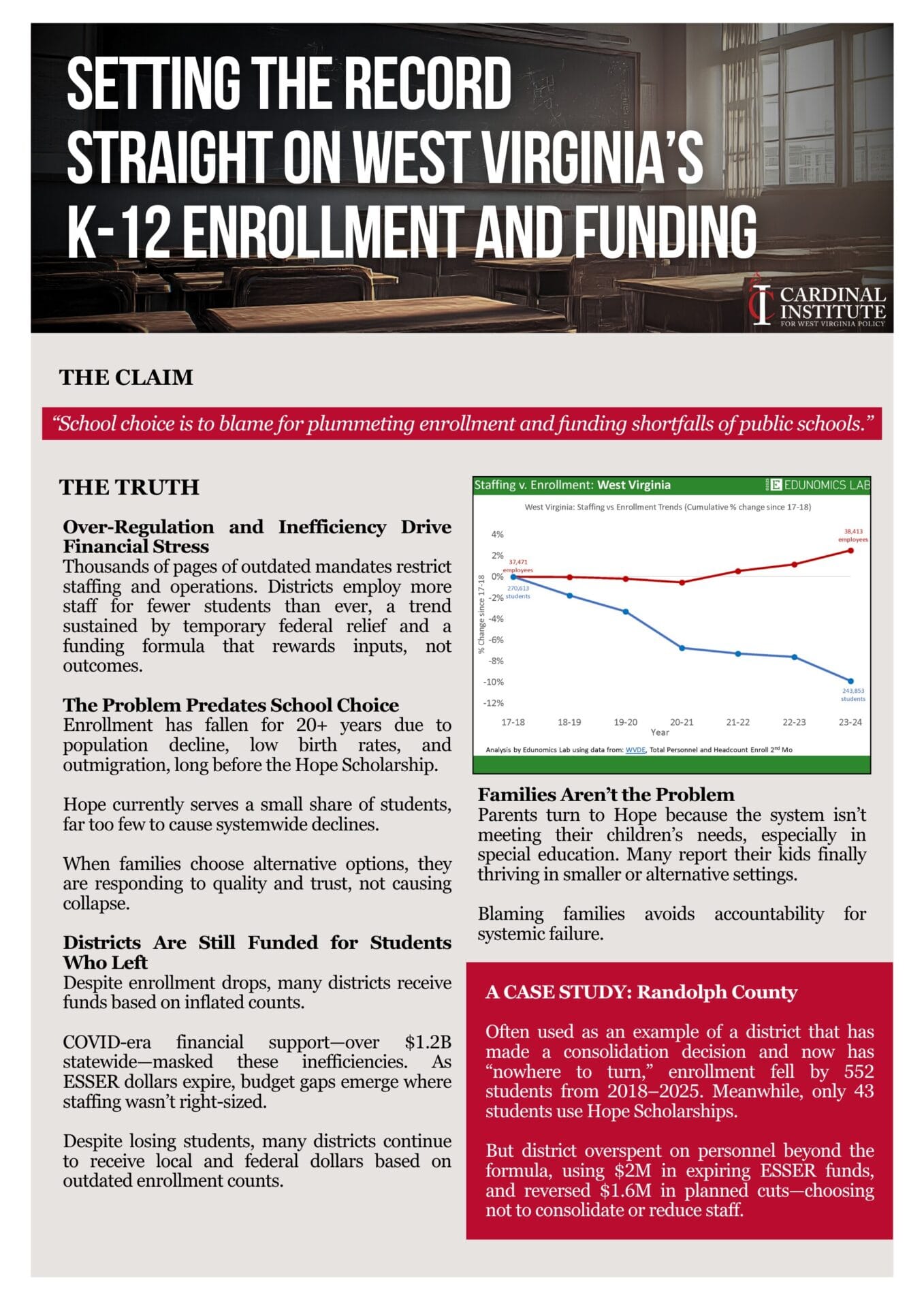
Instead of Forcing Schools to Reopen, Give Families Their Education Dollars
Cardinal Team
One of the most contentious debates currently raging across the country is whether schools should reopen in the Fall. The hashtag #schoolsreopening is even trending on Twitter! Everyone has an opinion about it, and every state and school district is coming up with a different plan on how to handle in-person and remote learning solutions.
Despite all of the available options and “well-laid plans,” no one seems to be satisfied – perhaps that’s because states are still trying to force “one-size-fits-all” solutions onto families even in the middle of a pandemic. And, frankly, when we can’t even decide how best to “flatten the curve,” or whether or not masks are effective, why should we trust that our state education systems can effectively and safely satisfy the education needs of ALL the families in West Virginia with one (or even two or three) options for everyone? (Even during the pandemic’s worst food shortages we had more options than that!)
One state is doing things differently. South Carolina has decided to launch Safe Access to Flexible Education (SAFE) Grants. These one-time need-based grants of $6,500 will allow 5,000 families from South Carolina to decide what back to school option is the best, and safest, for their children. These grants will be used to pay for private tuition at an institution that best suits their child’s unique needs. South Carolina could, and should, do one better by providing these SAFE Grants to ALL families across the state and by making this a yearly education funding option, but it’s still a step in the right direction that West Virginia should follow.
West Virginia’s Department of Education has outlined a few possible re-opening scenarios including in-person and remote learning options that will be ultimately decided upon by each individual county board of education. However, none of these options provides families with the education dollars they need to pursue the safest and best-suited education environment for their children.
Since its founding in 2015, the Cardinal Institute has tirelessly advocated for funding students, not systems. It is vital that the Mountain State put the needs of children, NOT adults, first by directing education funds to families, rather than districts. This will allow them to choose the education option that best suits their needs – whether that’s traditional public, homeschool, private, or one of the newly popular micro-schools!
Education Savings Accounts, SAFE Grants, or whatever you want to call them, are the best, most flexible option to ensure that students are getting truly equitable educations. They can also provide needed accountability and transparency that is currently lacking in state education funding. This is far superior to an education whose quality depends on the zip-code a given student lives in and how much property tax revenue their district brings in.
The pandemic has made the need and desire for education flexibility even more apparent than ever. One RealClear Opinion Research survey found that 40% of families are more likely to homeschool or virtual school in the Fall. In the face of numbers like that, coupled with the uncertainty for both parents and teachers that comes with schools reopening, states should prioritize safety and flexibility by following South Carolina’s lead and extending education funding grants to families so they can find better, safer alternatives for their children.
In addition to the need for more flexibility, it is already clear that many public school systems are unable to provide quality remote learning solutions. “A June 2020 report by the Center for Reinventing Public Education found that only 1 in the 3 school districts required teachers to deliver instruction during the lockdown. Recent data suggest students have already lost ground academically because of these kinds of systemic failures.”
Especially in states like West Virginia, where broadband access is limited, narrowing the options to “in-person” or “online” effectively forces many families to send their children to their local district school. There, children will face difficult-to-enforce social distancing measures, fewer classroom hours, and worried, distracted teachers.
Providing education funding directly to families, instead of forcing them to return to their local district school or go online, will help to satisfy every family’s needs regardless of their internet access, opinions on the pandemic, or financial means to find another alternative. It’s time to fund students, not systems. We need school choice NOW!
Amanda Kieffer is the Communications Associate for the Cardinal Institute for West Virginia Policy.







